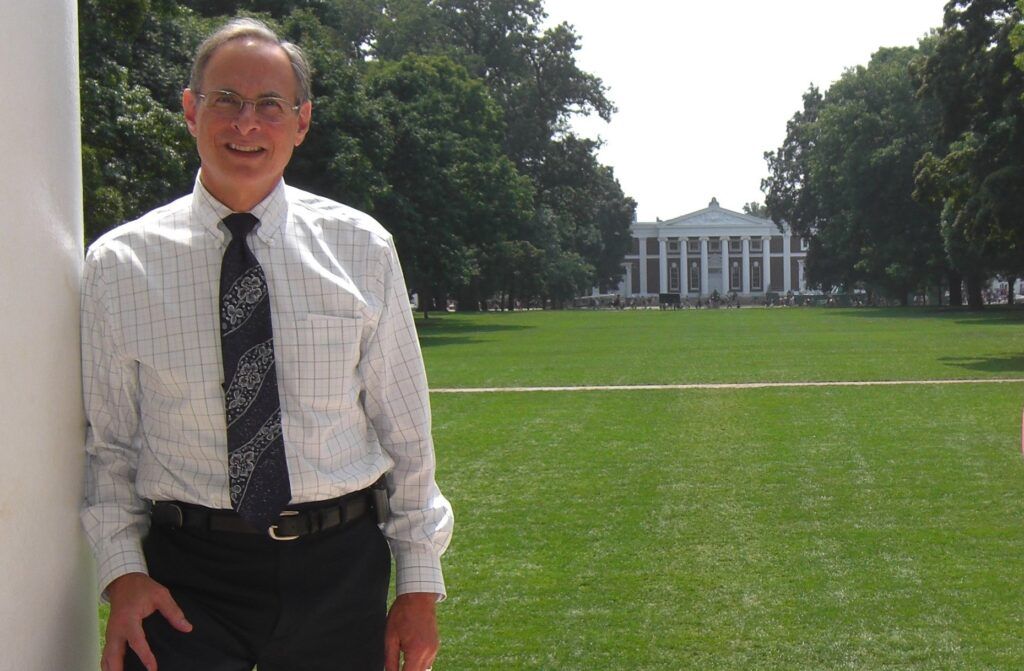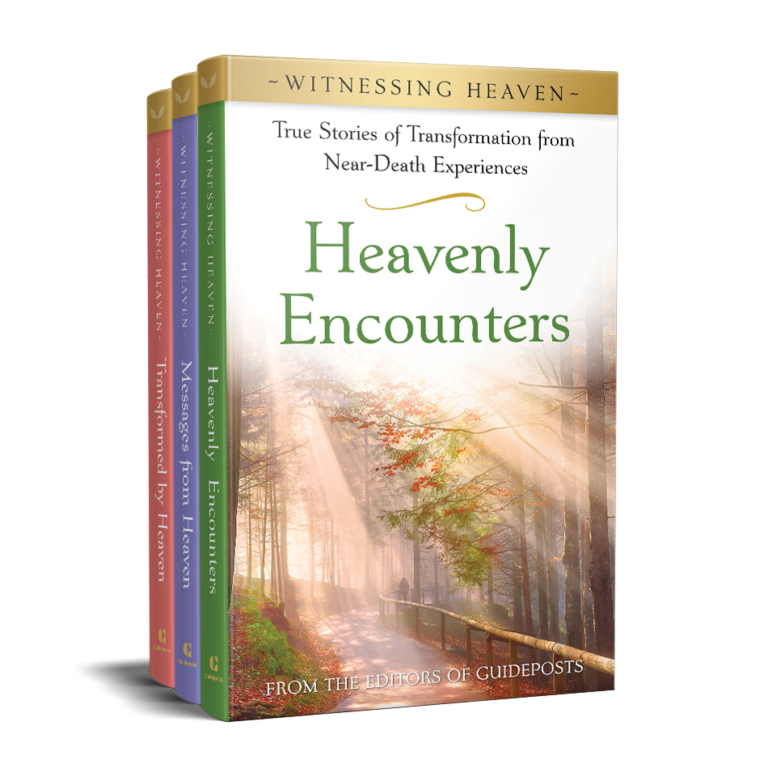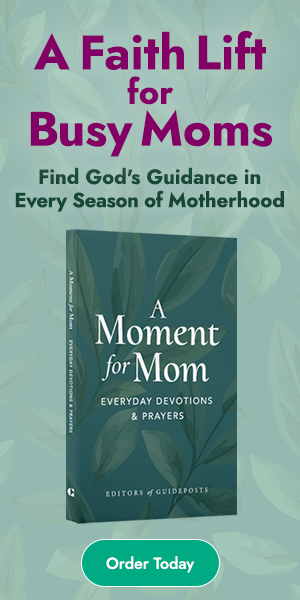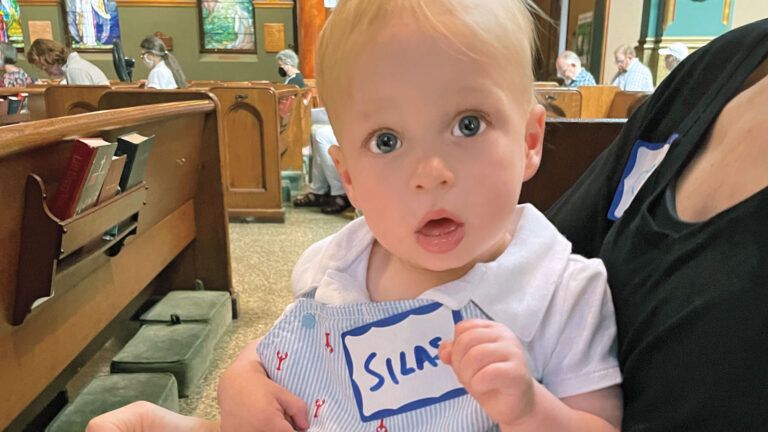Psychiatrist Bruce Greyson has interviewed more than 1,000 people who say they died and left their bodies, and then were given a glimpse of what awaits us in the hereafter. But it was an encounter not long after he began his psychiatric residency that inspired him to devote much of his career to the scientific study of near-death experiences, or NDEs.
He was called to interview Holly, a woman who had been brought to the emergency room after attempting suicide by overdosing on pills. He rushed to her room to give her a psychiatric evaluation, buttoning his lab coat to cover up some spaghetti sauce that had stained his tie earlier. But Holly was still recovering and unable to answer his questions. So he went down the hall to interview her roommate about the events preceding her hospitalization. He unbuttoned his lab coat, forgetting the stain, while trying to get as much information as he could. The next morning, he returned to see Holly. “I saw you yesterday interviewing my roommate,” Holly said. “You had a red stain on your tie.” Fifty years later, he’s still amazed by Holly’s out-of-body awareness. Greyson wrote about his research in his new book, After, and spoke with Mysterious Ways about his findings.
From your research, what have you found about people’s general feelings about death?
They are often afraid of death. It’s very common, even among Christians. There are two specific fears. One is that death is the end. There’s nothing else. I certainly believed that before I started doing research. The other fear that many people have is that they will be punished after death for their sins on Earth.
How does this compare to people who’ve had NDEs?
When people actually experience the afterlife, they lose all doubt. There’s no way you can convince an NDE-er [near-death experiencer] that their experience wasn’t real. They feel comfortable knowing that when they die, they’re going to go back to that same, wonderful place. Because they’re “dead” for just a short period of time, I wonder how they’re so certain that’s what the afterlife is. But they feel as if they’ve tasted eternity and are willing to go back.
Take, for example, the case of 45-year-old Peggy, one of the NDE-ers I interviewed. Her heart stopped during a hysterectomy. She was instantly transported to a place of brilliant white light, surrounded by love and contentment unlike anything she had ever experienced on Earth. When she was revived, along with having a renewed zest for life, any anxieties she’d had about dying disappeared. She felt unequivocally that she was going to return to that place when she passed. She said, “I look forward to dying and have no fear whatsoever. It will be when I can go ‘home,’ where I came from.”
What is the typical NDE, and why is it so comforting?
NDE-ers report a sense of being unconditionally loved when they pass over, as Peggy did. No matter what else happens in the NDE, people usually feel encompassed by this overwhelming sense of love in spite of their wrongdoings. They also often encounter their deceased loved ones. Knowing they’ll be reunited with them after death is tremendously comforting.
About three fourths encounter a warm, loving being. Many of them don’t put a label on it. About a third of them will call the being God. About two thirds of them will say, “Well, I’ll use the word God so you know what I’m talking about, but it’s much bigger than the God I was taught about in church.” About 80 percent of the NDE-ers continue to feel a greater connection to that divine being even after they come back to this life. Once the connection is made, it stays.
How do you respond to people who say NDEs are imagined?
An NDE skeptic will say that people are greeted by deceased loved ones because that’s what they want to believe will happen. And that may be an explanation in some cases. But there are cases where people encounter individuals whose deaths they were unaware of. I published a paper a decade ago with 30 or 40 of these cases, so they’re not unique.
One case was of a young man who had been hospitalized with severe pneumonia. His primary nurse was a young woman named Anita. They were about the same age and became friendly. At one point, she told him she had plans and was taking off a long weekend. While Anita was away, he suffered a respiratory arrest and had to be resuscitated. He had an NDE during that time.
He found himself in a beautiful pastoral scene, where he saw Anita walking toward him. Startled, he said, “Anita, what are you doing here?” She said, “You can’t stay here, you need to go back, and I want you to tell my parents that I’m very sorry I wrecked the red MGB.” Then she turned and walked away.
The man woke up back in his hospital bed and told the first nurse who walked into his room about his experience. The nurse got flustered and left the room. He later found out that Anita had taken the weekend off to celebrate her twenty-first birthday with her parents. They’d surprised her with a red MGB. She had taken the car for a ride and gotten in a horrible accident that killed her instantly.
There’s no way he could have known or expected or wanted her to be dead. Certainly no way he could have known how she died. And yet he did.
In my research, I corroborated that no one who experienced this kind of interaction in their NDE knew beforehand that the person they’d seen had died. Psychological explanations—a hallucination or your imagination creating a scene you find comforting, like being met by someone you know has died—didn’t justify the kind of knowledge and foresight gained in these types of encounters. The most straightforward conclusion we arrived at is that the person who died is still around in some form and able to communicate, and in fact has some free will.
Is an NDE more powerful than other types of spiritual experiences?
Definitely. Not necessarily because of the impact of an NDE on someone’s beliefs about the afterlife, but because of the unique power of NDEs to change people’s lives.
Are there specific markers of change that you’ve noticed in NDE-ers?
They become not necessarily more religious but more spiritual. They say that they feel more compassionate and are more concerned with relationships. They universally say that they now regard the Golden Rule (treating others as you want to be treated) not as a guideline but as a law of nature. It’s not an abstract concept. It’s a fact, like gravity. They also become much less interested in worldly things, in material possessions, in power, prestige, fame, competition. Those things don’t exist in the other realm, and people feel like they are better off for it.
What’s the most dramatic transformation you’ve seen after someone returns from an NDE?
I’ve known people who were career criminals, who were career addicts, who totally transformed their lives after an NDE. As a psychiatrist, I know our usual treatment in psychotherapy can’t do that as quickly, if at all.
What’s the most exciting thing to you about this research, as a scientist?
I find it compelling that the effects of an NDE have not been able to be replicated in a clinical setting. Scientists have tried to mimic the NDE with electrical stimulation to the brain, magnetic stimulation, hypnosis and psychedelic drugs. You can get some unusual experiences that have something in common with an NDE, but they don’t have the profound after-effects that the NDE does.
Are there any negative or challenging aspects of returning to life after an NDE?
It can be difficult for people to relate to others, to return to their job, to live a normal life, knowing that something so incredible awaits them. People are so transformed, so altruistic, that it can cause problems in their closest relationships. I’ve talked to children of NDE-ers who say, “It feels like my mother doesn’t love me like she used to, that she loves everybody the same as me. I don’t feel special to her anymore.” I’ve known NDE-ers who left their homes after Hurricane Katrina or after 9/11 and rushed to the crisis to help. The family feels abandoned. This is most noticeable when the person was the opposite beforehand. If they were selfish or competitive, they’re totally transformed after the NDE.
Can you talk about what NDEs might offer people who’ve never experienced them?
There have now been five studies done by four researchers of college students who took a class in NDEs. In these studies, students’ attitudes were tested before and after the class. The researchers found that students become more altruistic, more compassionate, after having merely studied NDEs. They did follow-up studies with these kids one and then two years after the class was over. The changes persisted. The students were still more compassionate than their peers who weren’t familiar with the subject.
These studies show what we already know anecdotally: that you don’t need to have an NDE yourself to be comforted and inspired by them. Researching all of these NDEs even had an impact on a skeptical scientist like me. I can’t say I’m 100 percent convinced of anything. However, I’m fairly convinced that there is an afterlife. The overwhelming evidence from NDEs, and from other reported spiritual experiences as well, supports that conclusion.






